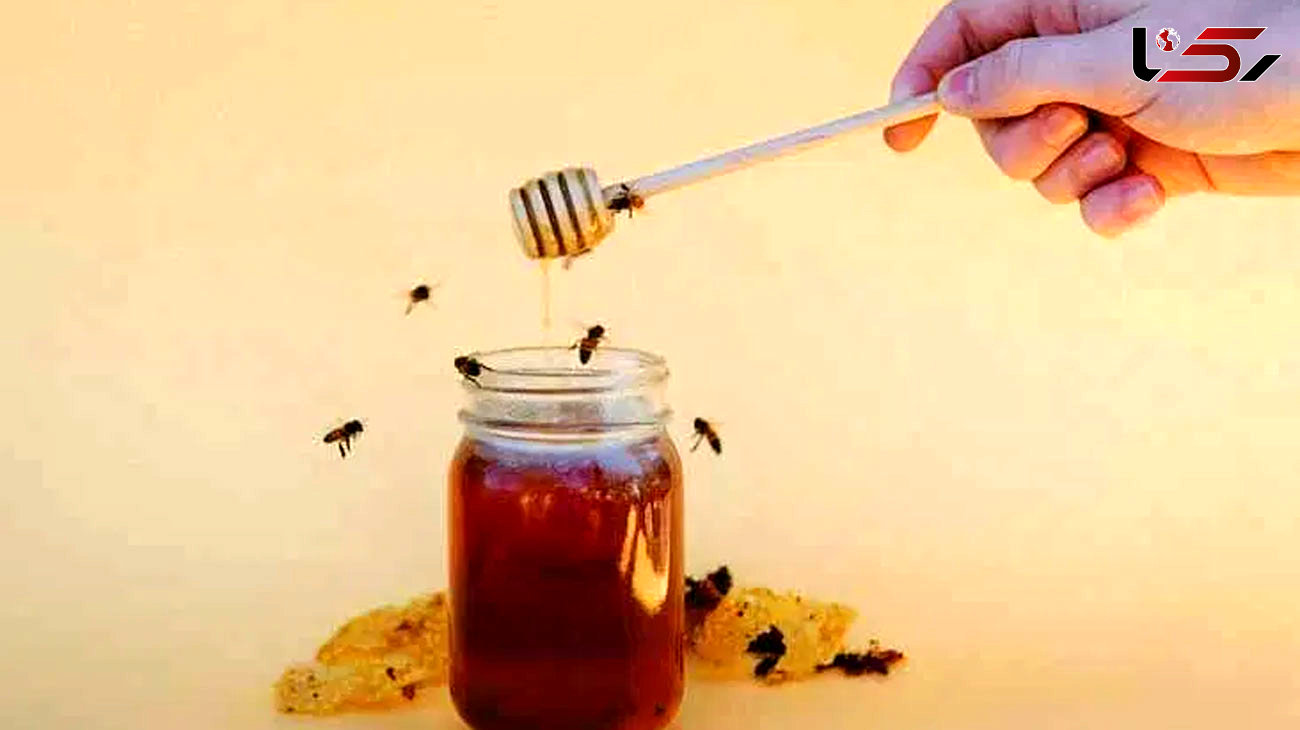Why honey now has superfood status with lots of extra health benefits
Rokna: It’s a natural energy source and smart sugar swap – but honey has health-helping properties too. We explore its shift from store cupboard staple to healing elixir

Then trials found it more effective than over-the-counter cough remedies – and Public Health england began recommending trying it before seeking a GP appointment.
Now the golden nectar has superfood status and is increasingly on our radar as a treat with extra benefits, from healing wounds to treating acne.
Honey’s appeal is nothing new.
It was the first sweetener used by humans – 8,000-year-old cave paintings in Spain depict people foraging for it.
In traditional Indian Ayurvedic medicine, it is used as a digestive remedy, and Ancient Egyptians applied it as an ointment for skin ulcers.
Today, worldwide sales are worth £7.58billion and honey is cropping up in everything from cosmetics to pharmaceuticals.
Nutritional benefits
“Honey is a mix of 80 per cent natural sugars (glucose and fructose), 18per cent water, and 2per cent minerals, vitamins, pollen and protein,” explains nutritionist Christine Bailey.
Its biggest appeal is as a natural alternative to refined sugar. Fructose and glucose are both simple carbohydrates, making honey a natural energy booster.
But because it contains a higher proportion of fructose than refined sugar, honey is slightly lower on the glycaemic index, which means it makes blood sugar levels rise and fall more slowly. This makes it a great fitness food, says Bailey.
“The fast-releasing glucose and slower-releasing fructose may support workouts. Studies show this combination may improve performance in prolonged cycling, compared to glucosealone.”
Unlike sugar’s “empty calories”, honey also contains many nutrients, albeit in micro doses.
Bailey says: “Honey has small amounts of B vitamins, vitamin C and antioxidants including polyphenols. And it contains minerals such as calcium, iron, magnesium and potassium.”
But honey is classed as a ‘free sugar’ – and adults shouldn’t have more than 30g daily.
So don’t glug it like Winnie the Pooh. Honey actually contains more calories than sugar – 21 per teaspoon versus 16. Butluckily, you are likely to use less because it is sweeter.
Easing upper respiratory tract infections
Most of us have sipped a mug of warm water, lemon and honey to soothe a sore throat. But it’s more than a folk remedy. A 2020 British Medical Journal review backed honey’s effectiveness at relieving upper respiratory tract infections, concluding it was “a widely available and cheap alternative to antibiotics.”
It shouldn’t replace medical treatment, but Clare Thornton-Wood of the British Dietetic Association, says: “In many ways, honey probably is better than antibiotics because they’re only good for bacterial infections.”
Healing wounds
Honey is well-established as a wound healer – the NHS uses medical-grade honey in sterile dressings. A 2020 review found it had anti-inflammatory effects, decreased pain and shortened healing time for wounds.
“All honey is antibacterial to some extent, with manuka most effective,” says Thornton-Wood.
This is partly due to the chemical hydrogen peroxide.
“This was traditionally used as an antiseptic, but it is found in honey in levels that are very low, so it’s gentle,” says Pam Hunter, microbiologist and manager of research at the British Beekeepers Association.
“Honey also draws liquid out of wounds and stops dressings sticking.”
That said, she does not recommend sloshing raw honey over scraped knees.
“It needs to be irradiated so there are no contaminating organisms.”
If you don’t mind the stickiness, you can also apply manuka honey to spots, due to its antibacterial properties.
Helping allergies
Many people swear eating honey helps their hay fever.
No strong science supports this yet – any positive effects would come from the pollen that your stomach acid would destroy, says Hunter.
But she says if you let honey hang around in your mouth, it’s plausible. “Sublingual absorption happens under your tongue and the mouth has lots of receptors.”
To try it, stick to British honey as the bees need to visit our native flora.Reducing hangovers
If you’re suffering after a night out, honey might help, says Hunter.
“The fructose speeds up the oxidation of alcohol by the liver.”
That’s endorsed by the Royal Society of Chemists, who recommend honey on toast the morning after.
Supporting digestion
Some also believe honey eases digestive complaints (although it may exacerbate IBS symptoms).
Bailey says: “Research suggests honey may help stop acid reflux , and aid with reducing diarrhoea.”
One 2013 study showed manuka killed bacteria associated with food poisoning. That’s because this thick, dark, New Zealand honey has potent antibacterial properties, thanks to a substance called methylglyoxal (MGO). The higher the MGO number, the more powerful.
It is also thought to be a prebiotic – feeding “good” bacteria in your gut.
“It contains compounds such as fructo-oligosaccharides that can enhance growth of helpful microbes,” says James Annabell, co-founder of Egmont Honey .
Which variety?
There’s a massive range of honeys out there, each with a unique colour, consistency, flavour (reflecting which flowers honey bees visit) and active ingredients.
As a rule, read the label so you know the source and avoid blends that aren’t pure.
“Honey which can be tracked from hive to home often guarantees quality,” advises Egmont Honey co-founder James Annabell.
“Choose a sustainable honey that protects the environment, bees and the people working to get it on your shelves.”
“Raw” usually means honey that hasn’t been treated at high temperatures or highly filtered.
Many people swear by manuka. “Traditional honeys are usually pasteurised and filtered, but manuka is subjected to little processing,” adds Annabell.
Ultimately, though, the best thing about honey is that it’s delicious.
Drizzle over baked apples, use as a glaze for a roast, or a topping for pancakes.
“It’s good stirred into porridge or yoghurt,” says nutritionist Christine Bailey.
“Add a spoonful to your pre-gym smoothie for a pre-workout boost. Or use it in homemade granola , protein bars or cookies .”
Honey was the first ever sweetener used by humans
Mirror

Send Comments